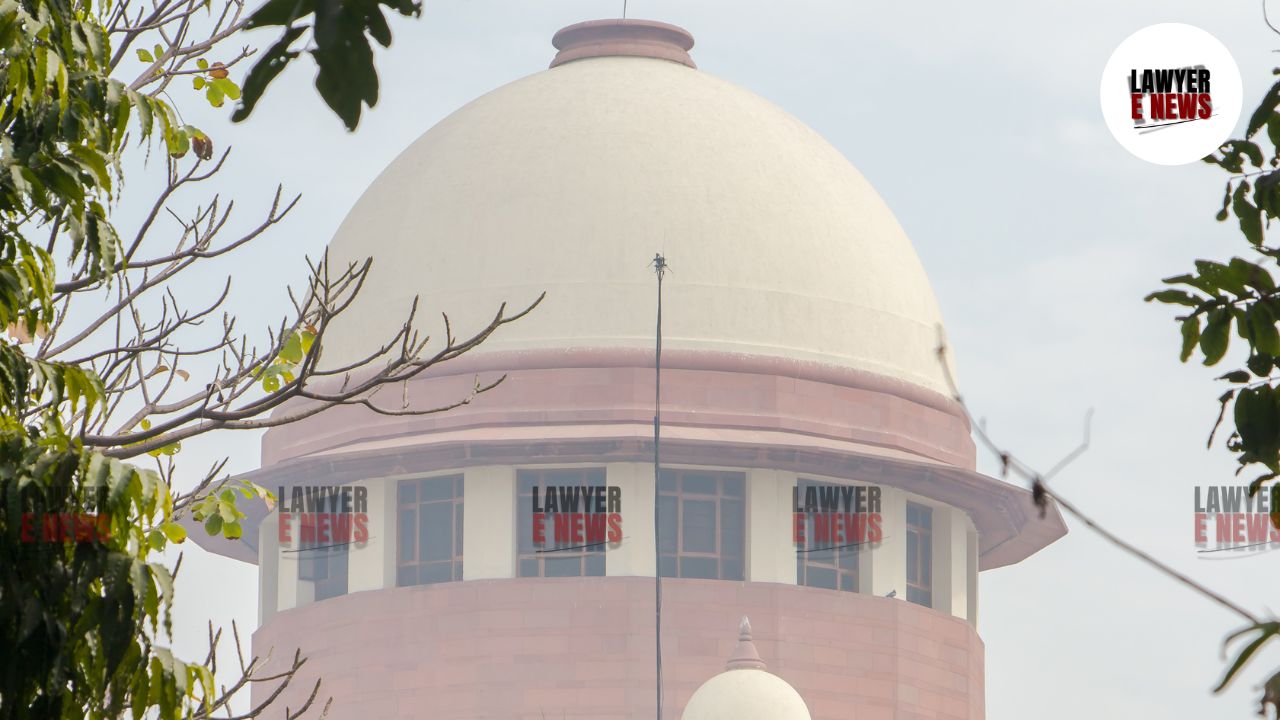-
by sayum
16 February 2026 7:15 AM



Supreme Court of India setting aside a Bombay High Court ruling that had directed the Municipal Corporation of Greater Mumbai (MCGM) to execute a conveyance deed transferring ownership of Block-A (leased land) to Century Textiles and Industries Limited.
The Supreme Court bench, led by Justice Vikram Nath, ruled that neither the Bombay Improvement Trust Transfer Act, 1925 (the 1925 Act) nor the terms of the lease deed obligated the MCGM to convey the leased property to the lessee after the lease expired. Furthermore, the Court dismissed the lessee's claim due to a delay of 61 years in filing the writ petition.
The case dates back to 1918 when Century Textiles sought land under the Poorer Classes Accommodation Scheme (PCAS) to construct housing for economically weaker sections of society. The Improvement Trust leased a portion of the land (Block-A) to the respondent for 28 years in 1928, with the lease expiring in 1955. Despite the expiration of the lease, the respondent continued to occupy the property.
In 2016, after over six decades, Century Textiles filed a writ petition seeking a mandatory direction to MCGM to execute a conveyance deed for Block-A under Section 51(2) of the 1925 Act, which they argued provided a statutory right to conveyance upon the expiration of the lease.
No Obligation to Convey Under Statutory Framework or Lease Terms
The Supreme Court clarified that Section 51(2) of the 1925 Act does not impose an absolute obligation on the MCGM to convey the property to the lessee. Instead, the provision must be harmonized with Section 48(a) of the same Act, which mandates that lessees must return the premises in good condition upon the lease’s expiration.
Justice Nath emphasized:
“Interpreting Section 51(2) as an unqualified mandate would render Section 48(a) otiose. A harmonious construction ensures that the lessee’s obligation to restore the property remains intact unless the lease deed or statutory framework explicitly provides for conveyance.”
The Court observed that the lease deed executed in 1928 did not include any covenant for mandatory conveyance of Block-A after the lease period ended. Although Century Textiles had requested conveyance in their 1927 application, the Improvement Trust’s Board resolution approving the lease did not accept this request.
Delay and Laches Barred the Petition
The Court strongly criticized the respondent’s delay of 61 years in approaching the court. While a notice under Section 527 of the Mumbai Municipal Corporation Act, 1888, was issued in 2006, the respondent neither filed a suit within the six-month limitation period nor took steps to pay the required charges for conveyance. The writ petition filed in 2016 was deemed an attempt to bypass the statutory limitation period.
Quoting its previous rulings, the Court stated:
“A party cannot sit on its rights for decades and then seek relief through writ jurisdiction to escape limitation periods. Such conduct is not condonable.”
Abuse of Public Welfare Objectives
The Supreme Court also took note of Century Textiles’ 2009 application to repurpose the land for commercial redevelopment, which violated the lease’s purpose of providing housing for the poorer classes. The Court held that this conduct undermined the welfare objectives of the PCAS and amounted to an abuse of beneficial legislation.
Justice Nath remarked:
“The legislation was designed to provide tangible benefits to economically weaker sections. Diverting the property for commercial exploitation subverts the statutory framework and undermines the public trust.”
“Shall Convey” in Section 51(2) Interpreted as Contingent, Not Absolute
The Court clarified that the phrase “shall convey” in Section 51(2) of the 1925 Act must be read contextually and does not create an unconditional right to conveyance. The respondent failed to establish compliance with all lease conditions or to pay the required costs for conveyance.
Delay and Laches Fatal to the Claim
The Court observed that the respondent’s delay of 61 years demonstrated a lack of diligence and barred the claim under the doctrine of laches.
Public Welfare Considerations Prevail
The Court emphasized that the respondent’s attempt to commercialize the property violated the lease’s welfare objectives and set a dangerous precedent for the exploitation of beneficial legislation.
The Supreme Court allowed MCGM’s appeal, set aside the Bombay High Court’s judgment, and dismissed the writ petition. The decision underscores the importance of adhering to statutory timelines and preserving the integrity of welfare-oriented schemes.
Date of Decision: January 7, 2025
